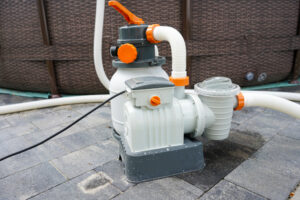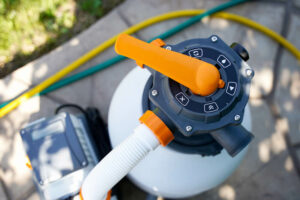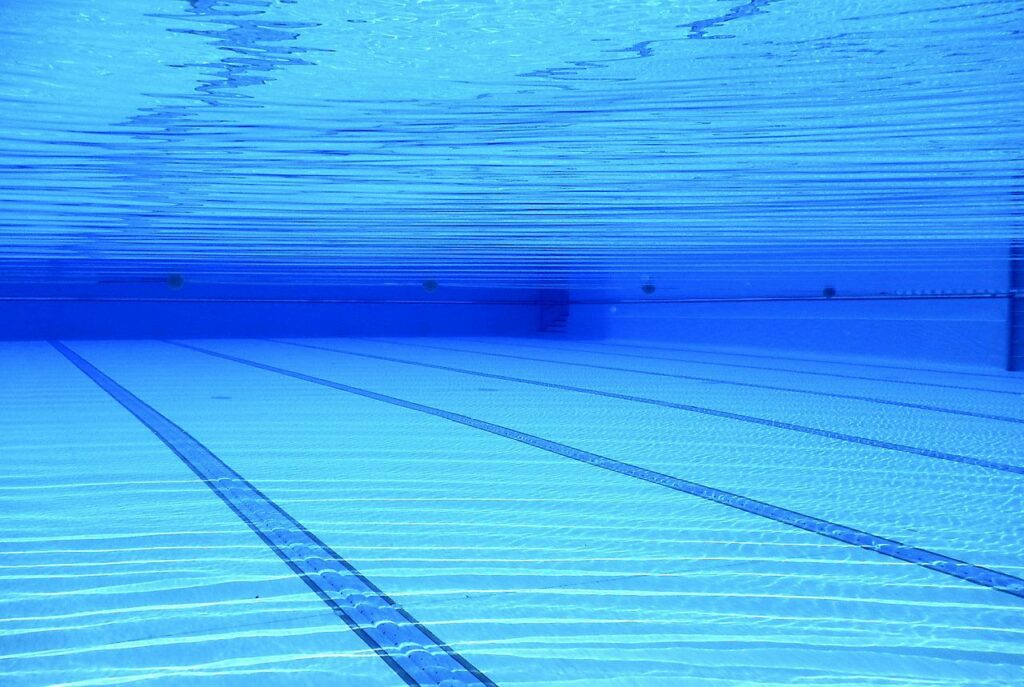Introduction
Is your pool vacuum doing its job as expected, or have you noticed a few red flags lately? Understanding whether your pool vacuum is working optimally is critical to maintaining a clean, healthy pool. In this comprehensive guide, we’re going to delve into the multifaceted signs and indicators of a well-functioning pool vacuum, explore common issues you might encounter, and offer troubleshooting tips to get your device back on track.
Understanding the Basics: How Does a Pool Vacuum Work?
The fundamental operation of a pool vacuum relies on creating a suction force that pulls in water and debris from the pool floor. Once sucked in, the debris is collected in a filter bag, while the water is expelled back into the pool. The vacuum should move systematically around the pool, ensuring the entire pool floor is clean. If your vacuum isn’t covering the whole pool or isn’t picking up debris, it might indicate a problem.
Recognizing the Proper Functioning of a Pool Vacuum: Key Indicators
A properly working pool vacuum shows several key signs. These include a well-maintained path of travel, steady suction, the ability to navigate obstacles, and an effectively collecting debris bag. Regular observation of your vacuum’s performance will help identify any changes that could suggest potential issues.
Is Your Pool Vacuum Not Moving? Troubleshooting Guide
A stationary pool vacuum could be a sign of a blocked filter or hose, or even a problem with the pump’s pressure. Check for any visible blockages in the hoses and clean the filter bag. If the problem persists, a professional inspection might be necessary to pinpoint the underlying issues.
Signs of Optimal Suction Power in Your Pool Vacuum
Strong suction is the backbone of an efficient pool vacuum. Signs of healthy suction include quick debris removal, a clean pool bottom, and the vacuum maintaining its path without any interruptions. If the suction is weak, it could be due to a clogged filter, blocked hose, or an issue with the pool’s pump system.

Why is Your Pool Still Dirty After Vacuuming? Potential Causes
If your pool remains dirty after vacuuming, there might be several potential causes. Insufficient suction, a worn-out vacuum bag, or a malfunctioning vacuum head could all contribute to subpar cleaning. It might also be worth examining the pool’s filtration system as a faulty filter could compromise the vacuum’s effectiveness.
Observing the Water Clarity: A Measure of Pool Vacuum Efficiency
Clear, debris-free water is a good indication that your pool vacuum is functioning correctly. If the water appears cloudy or you notice floating debris, it could signal issues with your vacuum’s suction power, a full or damaged debris bag, or even problems with the pool’s filtration system.
Does Your Pool Vacuum Have Adequate Hose Length? Importance and Indicators
A pool vacuum’s hose needs to be long enough to reach the furthest point of the pool from where it’s connected. If the vacuum is struggling to reach certain areas or the hose is frequently detaching, it might be time to invest in a longer hose.
Assessing the Performance of Your Robotic Pool Vacuum: A Step-by-step Guide
Robotic pool vacuums come with added complexities. They should navigate around obstacles, climb walls, and cover the entire pool floor. If you notice erratic movement, the inability to climb walls, or areas left unclean, your robotic vacuum may need a thorough checkup.
The Role of Pool Vacuum Bags: How to Tell if They’re Working
A pool vacuum bag plays a crucial role in trapping debris sucked up from the pool floor. A fully functional bag should trap debris effectively and not let any escape back into the water. If you observe increased debris in the pool after vacuuming or the bag looks damaged, it’s time to replace it.
Key Indicators of a Well-functioning Pool Vacuum
| Indicator | Optimal Condition | Potential Issue | Troubleshooting Tip |
|---|---|---|---|
| Suction Power | Steady and strong | Weak suction | Check for blockages in filter and hose |
| Movement | Systematic, covers entire pool | Stationary or erratic | Check hose length, ensure no blockages |
| Debris Bag | Effectively traps debris | Debris escapes back into the pool | Replace or clean the bag |
| Water Clarity | Clear, debris-free | Cloudy, floating debris | Check vacuum and pool filtration system |
Avoiding Common Pool Vacuum Mistakes for Optimal Performance
Ensuring your pool vacuum works at its best requires understanding and avoiding common mistakes. This could include not letting the vacuum bag get too full, ensuring the hose length is adequate, and regularly checking for wear and tear on the vacuum head and other parts.

Pool Vacuum Not Climbing Walls? Possible Reasons and Solutions
If your vacuum isn’t climbing walls, it could be due to a lack of suction, improper weight distribution, or a problem with its wheels or tracks. You might need to adjust the settings, check for blockages or wear and tear, or consider getting a professional’s opinion.
Checking Your Pool Vacuum’s Pressure Gauge: Essential Tips
Your vacuum’s pressure gauge should be within the manufacturer’s specified range for optimal operation. If the pressure is too high or too low, it could indicate a clog in the system, a problem with the pump, or a need for backwashing the filter.
Maintaining Your Automatic Pool Vacuum: Best Practices
Regular maintenance of your automatic pool vacuum can prolong its lifespan and ensure it operates at its peak. This includes routine cleaning of the debris bag, checking the hose for any damage, and ensuring the vacuum’s moving parts are not worn out.
Understanding the Connection Between Pool Filter and Vacuum Performance
The pool’s filtration system and the vacuum work together to keep your pool clean. A malfunctioning filter can reduce the vacuum’s effectiveness and vice versa. Regular cleaning and maintenance of both systems are crucial for a sparkling clean pool.
Debris Collection and Your Pool Vacuum: Are They Working Together Effectively?
The efficiency of your pool vacuum in collecting debris is a significant indicator of its performance. Regularly check the debris bag for any signs of damage or if it’s full. Replace or clean as necessary to ensure maximum cleaning efficiency.
Pool Vacuum Hoses: Detecting Leaks and Understanding Their Impact
A leak in the pool vacuum hose can severely hamper its performance by reducing the suction power. Check your hose regularly for any signs of wear and tear, especially if the vacuum’s performance seems compromised.
The Impact of Pool Vacuum Speed: How to Adjust and Why it Matters
The speed at which your pool vacuum moves can affect its cleaning efficacy. If it moves too quickly, it might miss some debris. Conversely, if it’s too slow, it may not cover the entire pool. Consult the manufacturer’s manual for optimal speed settings.
Is Your Pool Vacuum Making Noise? Interpreting Sounds for Health Check
Unusual noises coming from your pool vacuum could signal a problem. It could be due to a blockage, an issue with the motor, or something stuck in the vacuum. If the sound persists after checking for obvious issues, consider seeking professional help.
Can Your Pool Vacuum Navigate Obstacles? A Test of Functionality
Your pool vacuum should be able to navigate around obstacles like ladders or steps. If it consistently gets stuck or avoids certain areas, it might be a sign of a problem. Check for any blockages and ensure the hose length is adequate.
Deciphering Unusual Pool Vacuum Behavior: A Comprehensive Analysis
Unusual behavior in your pool vacuum can be due to a range of issues – from a blocked hose to a malfunctioning motor. Keep an eye out for erratic movement, frequent stalling, or a reduction in suction power. Each of these could signal the need for maintenance or repairs.

Conclusion
A well-functioning pool vacuum is the cornerstone of a clean and healthy pool. Regular checks on suction power, hose integrity, debris bag condition, and overall performance are essential to keeping your vacuum in top shape. From understanding the basics to interpreting unusual behaviors, we’ve explored the various aspects of pool vacuum health in this guide. Remember, the key is to be proactive rather than reactive – regular maintenance will often prevent major issues from arising.
Beyond the Basics: Digging Deeper into Pool Vacuum Health
There are other considerations that might not fit squarely into our previous discussion but are equally important when examining your pool vacuum’s performance.
Understanding Your Pool Vacuum’s Cycle Time
Every pool vacuum has a recommended cycle time – the duration it should run to effectively clean the pool. If your vacuum takes significantly longer or finishes much faster, it could suggest a problem.
The Significance of Your Pool Vacuum’s Age
Like any device, a pool vacuum has a lifespan. If your vacuum is several years old and performance is declining, it might be time to consider a replacement.
The Role of Pool Chemistry in Pool Vacuum Performance
If your pool’s chemical balance is off, it can affect the efficiency of your vacuum. High acidity, for instance, can lead to premature wear and tear. Regularly check and adjust your pool’s pH levels.
Examining the Impact of Pool Size and Shape on Vacuum Efficiency
The size and shape of your pool can impact how effectively your vacuum cleans. Ensure your vacuum is appropriate for your pool’s specifications, and consider manual cleaning for hard-to-reach corners and crevices.














